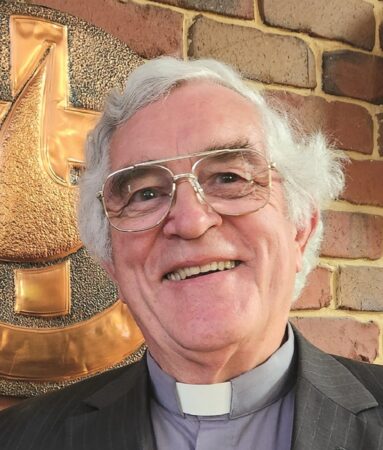
Rev Wes Hartley
I grew up in a strong church family, with my parents, Rev Frank Hartley and Marion, being the greatest influence on my early life.
A returned missionary from India, in 1933 my mother became the first woman in Australia accepted for training by the Presbyterian Church, and this was where my parents met as my father was studying at Queens College for the Methodist ministry.
The experiences of World War II led my parents to a life of peace activism and working with the forgotten of society at Prahran Mission, and this defined my formative years.
My parents’ mentoring had a profound effect on me, leading to a strong sense of call in my final year at Wesley College, when I became one of the youngest candidates ever accepted by the Methodist Conference.
After a year at Otira Home Mission Training College, with four other Methodist candidates, in 1966 I was sent to study at the University of Western Australia. As a consequence I have spent over half a century living and ministering in Western Australia.
In 1969 I was a student pastor in Perth, returning to Melbourne for further training and a similar role in East Malvern for two years, before my exit appointment to Hobart Wesley/Sandy Bay in 1973.
Upon returning to WA in 1976, I ministered in Upper Avon, Manning, and Trinity Perth, was General Secretary of the WA Council of Churches, Executive Officer of Uniting Aboriginal and Islander Christian Council; and spent 11 years in Busselton before concluding in 2013 as Presbytery Officer of The Hunter in NSW/ACT Synod.
I have experienced great diversity in my various appointments, with ecumenical engagement, commitment to the preaching craft and working with the less privileged in our society the most significant aspects of what ministry has meant for me.
While the nature of the church has changed, the Uniting Church in particular, my initial sense of call from nearly 60 years ago remains as strong as ever. Ultimately we are called to be a servant community and that in itself means self-promotion or maintaining the status quo can never be an option for those who chose – or who have been chosen – to follow in the steps of Jesus.
Long may it be ever so.
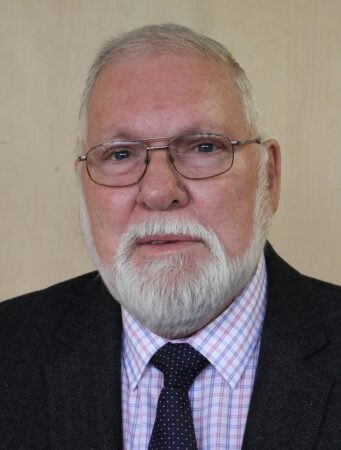
Rev Dr Barry Brown
My preaching vocation began in 1962 when I was 17 years of age. I was then a helper in the Echuca Methodist Circuit and was accredited as a local preacher of that circuit in 1966 while studying at Otira College.
I married Heather Caldwell, the love of my life, at the end of 1966 and served as a home missionary in the Kerang-Barham Circuit for two years from 1967, then as a student pastor for four years at the Sunshine Methodist Mission while attending the Methodist Theological Hall in Melbourne.
I was ordained in 1973 while serving in the Ovens Valley Circuit, and I later served at Wesley Church in Melbourne, Deep Creek Parish Mission at East Doncaster, Warrnambool Uniting Church, and Croydon Uniting Church.
As a Methodist I served in three multi-congregation appointments, and since union in 1977 all of my placements have been in single congregations.
As well as serving on committees at each level of the Uniting Church, I also represented the UCA for 10 years on the World Methodist Council and attended WMC conferences in Honolulu, Nairobi, and England. I have written a number of books, some collaboratively, mostly related to church history.
I retired in 2007 and provided ministerial supply for about a decade, and I continue to preach about once a month, mainly at Mooroolbark where Heather and I are members. My preaching, over recent decades, has had a strong teaching component, and I also continue to provide ministerial supervision, which I have been doing for nearly 50 years.
If I was asked to identify one satisfying aspect of my ministry it would be observing the number of present-day church leaders who were involved in ‘Focus on Youth’, which commenced at Wesley Church in Melbourne during my ministry there.
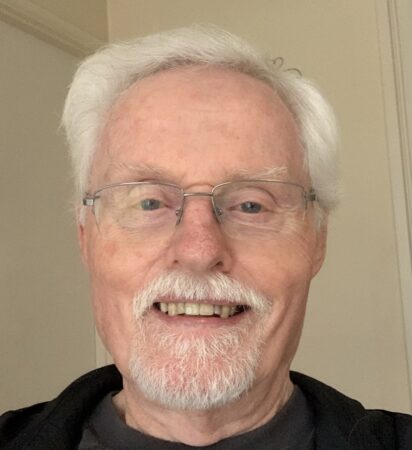
Rev Denis Tomlins
I was ordained at the Ascot Vale Congregational Church in Melbourne by the Rev Dr Harold Fulton Leatherland, Principal of the Congregational Theological College.
The service also marked the conclusion of three years as student minister at the Ascot Vale church.
I had commenced training in 1968, spending the first 12 months studying at Kew. The following years I attended lectures and events at the United Faculty of Theology in Parkville, and it was there that I joined with students from Ormond, Queens and Trinity, along with members of the Jesuit community and Churches of Christ.
Having left school at 15 years of age, these were ‘heady days’ for me, and I was privileged over the years to spend time in classrooms led by Dr Davis McCaughey, Harold Leatherland, Geoffrey Barnes, Robert Anderson, Arthur Blanksby, Harry Wardlaw, Nigel Watson, Graeme Griffin, Denham Grierson, George Yule, Norman Young and Max Thomas.
Following my ordination, I was offered a placement that “… was too good to refuse”, so with my wife Marg and three young children, we headed north to the Lockyer Valley Cooperative Parish in Gatton, Queensland.
Our ministry team was responsible for the care of communities at 12 preaching centres, each a gathering point for farmers from a very productive agricultural area in south-east Queensland.
We grew to love the people and the deep trust they shared in their appreciation of God’s goodness and faithfulness in the good times and rougher times. We saw both and the people’s resilience was inspiring.
At the end of 1978 we headed back south and to a position with the Council for Christian Education in Schools.
I was the second chaplain to be appointed to Corio Technical School, and served from 1979 to 1985. From 1986 to the end of 1992 I was the minister of Alexander Thomson Uniting Church, and shared with colleagues Wes Trigg and Ralph Clarke in its formation with a neighbouring congregation as the Belmont Uniting Church.
From 1993 to my retirement at the end of 2006, I was the Foundation/Senior Chaplain at Christian College Geelong.
Having gained a teaching qualification whilst at Corio, I spent those years in the classroom with senior VCE students in addition to other college responsibilities.
There was a marked contrast between the state and independent schools, yet in each young people were asking the same fundamental questions about life: origins, meaning, purpose, and responsibilities for themselves, each other and the rest of the natural world.
Memories from those classrooms with those young people will remain with me, and kept me grounded and focused on those basic questions of life, as if our very existence as a species depended on finding meaningful answers.
I am grateful beyond words for the privileges and challenges I have had over my time as a Minister of The Word and Sacrament.
I owe an enormous debt of gratitude to my wife Marg, along with our children Michelle, Jason and Peter. Their unstinting support to me and the communities we have served, over each and every year, has been outstanding.
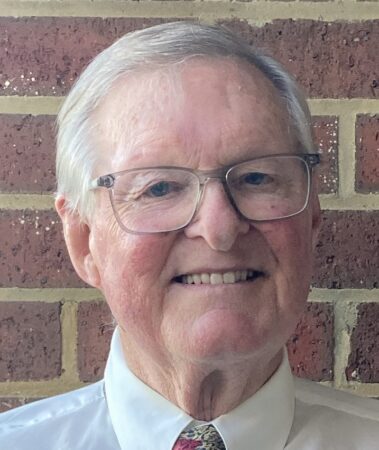
Rev Ian Porter
I began my journey in ministry almost 60 years ago, prompted to consider it when our Minister’s wife said to me, after a service I took as a lay preacher, that I should consider the ministry.
When I reflect on my years in ministry, what stands out for me is the importance of the pastoral dimension. I am not saying by this that worship and preaching is less important – I always put heart and soul into that as well.
In the pastoral area you are dealing with the lives of people at every level from birth to death. Besides the many baptisms, confirmations, weddings and funerals, there are the traumas that people experience in which pastoral care and support is very significant, not only to provide comfort and support at a human level, but spiritually too, because such experiences can be a challenge to personal faith.
For me, all this means that in ministry one needs to be a good listener and observer, and in that way you make the best conditions for being able to help people with their spiritual problems.
I have had two rural parishes, Natimuk, and Donald; one regional, St Andrew’s Bendigo, and two suburban ones, Bentleigh, and St Stephen’s Caulfield.
I have loved them all, including their challenges, so I feel very blessed that our Minister’s wife encouraged me to consider ministry, so that it became my calling.
Her action all those years ago demonstrates that in our churches we should be more mindful of being encouragers.
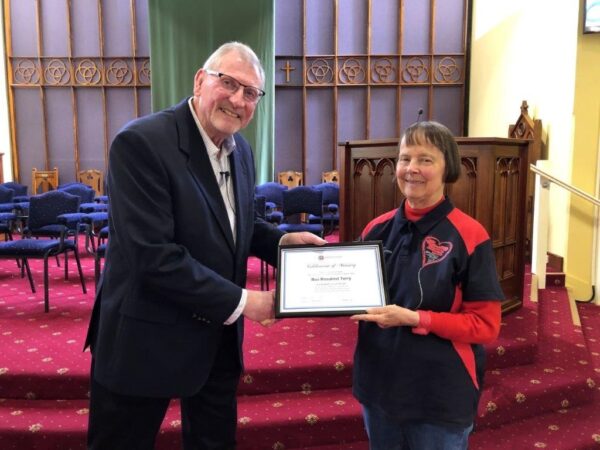
Rev Rosalind Terry receives her certificate marking 50 years of ordination from Rev Dr John Broughton.
Rev Rosalind Terry
When I reflect back over 50 years of ordained ministry, it appears to me like a year in the life of a daffodil.
When first inducted into the Burnie Parish, with pastoral care for three smaller congregations, the bulb was planted. I knew nothing much, I’d never chaired a meeting, I’d only ever attended one funeral and one marriage.
I was the first woman minister in the Methodist Church in Tasmania, and on many occasions the people and my two ministerial colleagues, Tom Verrier and Nairn Kerr, had to teach me how to “do” ministry.
Gradually a tiny shoot appeared above the ground, and when I met Rev Dorothy Wacker, who had then been ordained for 19 years, I wondered how she had survived so long in ministry.
Five more parish ministries followed, and in between, a stint as Presbytery Minister in the Western Australian Presbytery of Stirling.
So much more to learn, explore, trial with successes and failures along the way: youth clubs, teaching religious education, starting a men’s group and a religious book club, a ministry to the financially stressed with meal and services attached, a care program with folk confined to their homes, worship in nursing homes, usually with ecumenical co-workers, chairing presbytery meetings in two states, Synod committee meetings, learning to use Power Point, and the list goes on and on.
Always, growing together with my congregations in love and service.
A more recent gift was the opportunity to offer the Choir of High Hopes (the Hobart version of the Hard Knocks Choir) hospitality in our church hall, and what a ministry activity that has been over the last 15 years for myself and the congregation.
Through it all on a personal level I had been exploring spirituality through silent retreats, weeks at Taizé and Iona, reading and reflection with colleagues, as well as drawing and poetry whilst in nature.
These times of focus on God’s loving presence were what kept me alive through those 40 years of “active ministry” and the following 10 years of “retirement”.
The bulb had come to mature flower, even if at times it had felt a little dehydrated or battered by the elements.
Retirement, what a strange concept. One is ordained for life, and ministry continues after the pastoral ties are cut.
But I have become slower, and even more forgetful. I am learning to pull back and work within my capacity.

